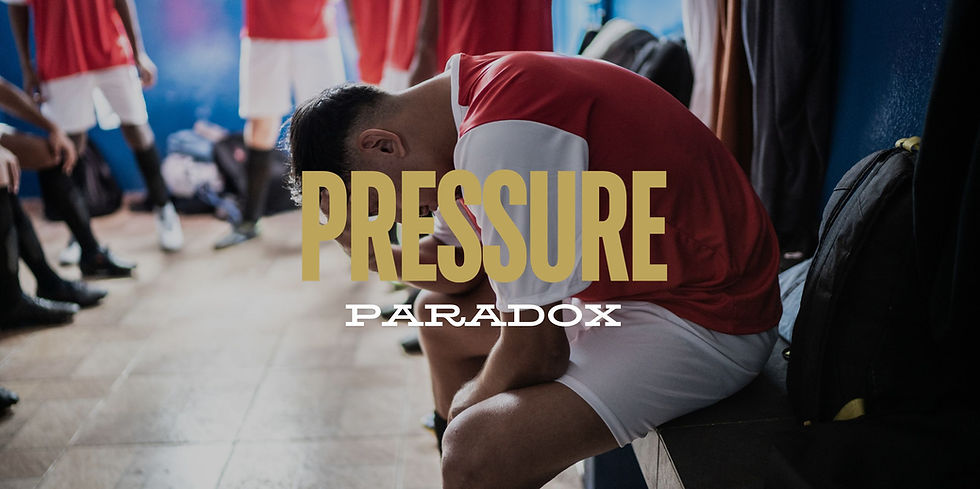The Pressure Paradox: Why Some Athletes Improve Under Stress—And Others Don’t
- Sep 22, 2025
- 2 min read
Pressure is the ultimate truth-teller in sports.
It doesn’t care how many hours you trained, how elite your metrics look in practice, or how high your potential might be. When the stakes rise, some athletes rise with them—while others shrink under the spotlight.
At Human Data Intelligence (HDI), we study the psychological architecture behind those split-second moments that define careers. And what we’ve found is clear:
Clutch performance isn't a mystery. It’s measurable.

The Myth of the “Big Game Player”
We’ve all heard it before:
“She shows up when it matters.”“He’s got ice in his veins.”“You want her taking the last shot.”
But what if that reputation wasn’t just anecdotal? What if there were quantifiable traits that consistently show up in high-performers under pressure?
Our psychometric data from elite clubs across the globe reveals three core traits that predict performance under stress:
1. Emotional Regulation
The ability to stay calm, focused, and intentional under emotional or physical stress.
Athletes who score high here are less likely to panic, make rash decisions, or let frustration derail their game. They don’t ignore the pressure—they manage it.
2. Hardiness
A psychological resilience that frames challenge as opportunity.
Hardy athletes see pressure moments not as threats, but as tests they are prepared to meet. They reframe nerves as energy, and setbacks as fuel.
3. Self-Efficacy
The belief in one’s ability to execute, regardless of external circumstances.
Even if the crowd is loud, the opponent is strong, or the situation is unfamiliar—athletes with high self-efficacy carry an internal confidence that holds up under strain.
Real-World Example: The Unexpected Finisher
One club we worked with had a striker who, by physical and technical standards, wasn’t their top player. But he had the highest scores in hardiness and emotional regulation on the team.
When it came to knockout matches or penalty shootouts, he consistently delivered.
Not because of raw skill—but because he could absorb the moment.
Can You Train for Pressure?
Yes—and you should.
While some athletes are naturally predisposed to handle stress better, mental strength is plastic, just like physical strength. Using HDI insights, clubs can develop training modules that:
Simulate pressure environments in controlled settings
Build micro-routines that ground players before high-stakes actions
Integrate breathing, visualization, and self-talk into pre-performance rituals
Encourage reflection post-match to build self-efficacy over time
Most importantly, coaches can individualize pressure training instead of assuming a one-size-fits-all approach.
Pressure Reveals, But It Also Shapes
It’s true that pressure reveals character—but with the right tools, it can also build it.
At HDI, we believe that clutch moments shouldn’t be left to chance. With the right psychological metrics, clubs can:
Identify which athletes thrive under pressure
Train the mental muscles that turn stress into strength
Build squads that stay composed when it counts most
Because in elite sport, greatness isn’t defined by what you do when it’s easy.
It’s defined by what you do when everything’s on the line.
.png)



Comments